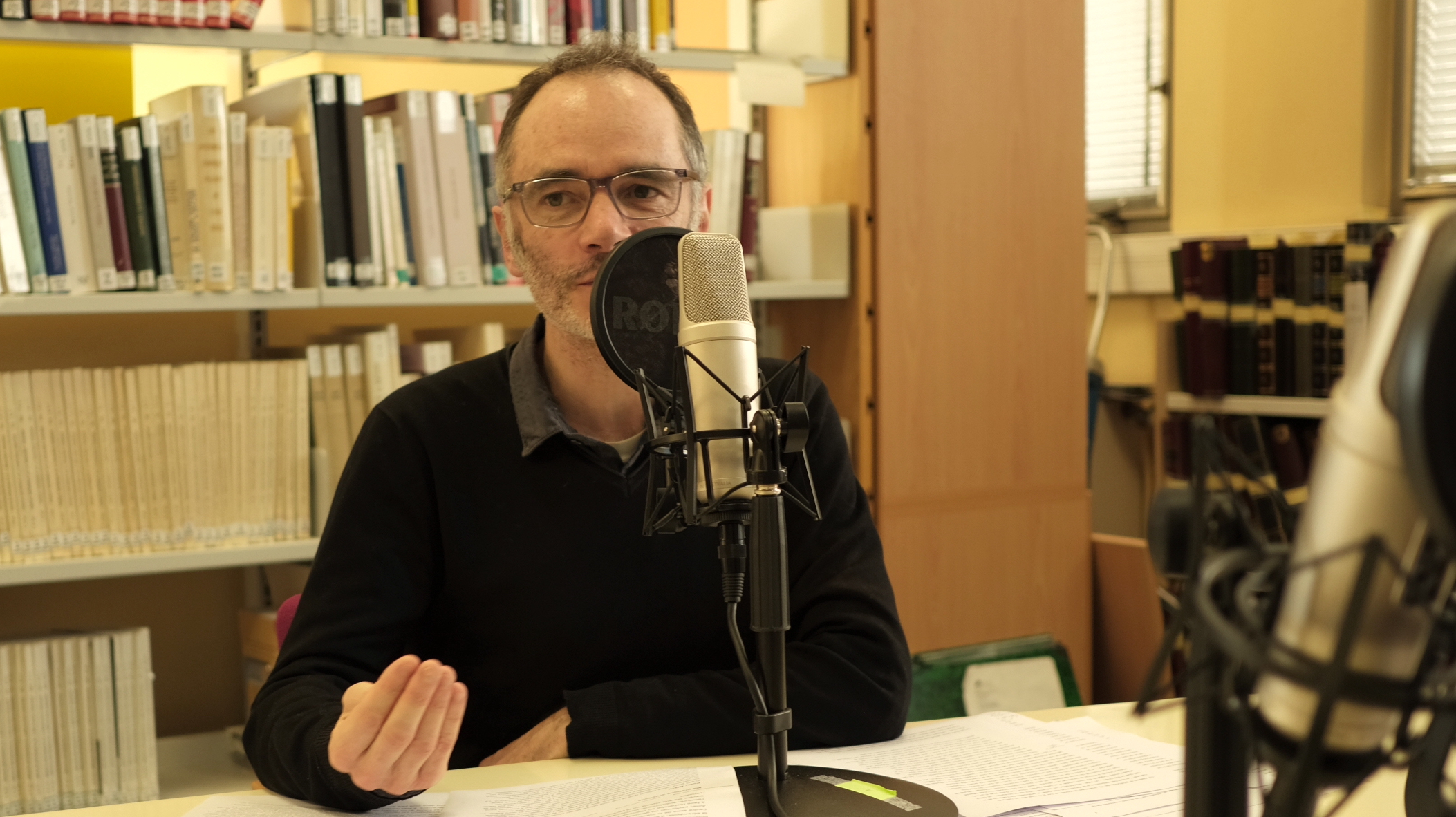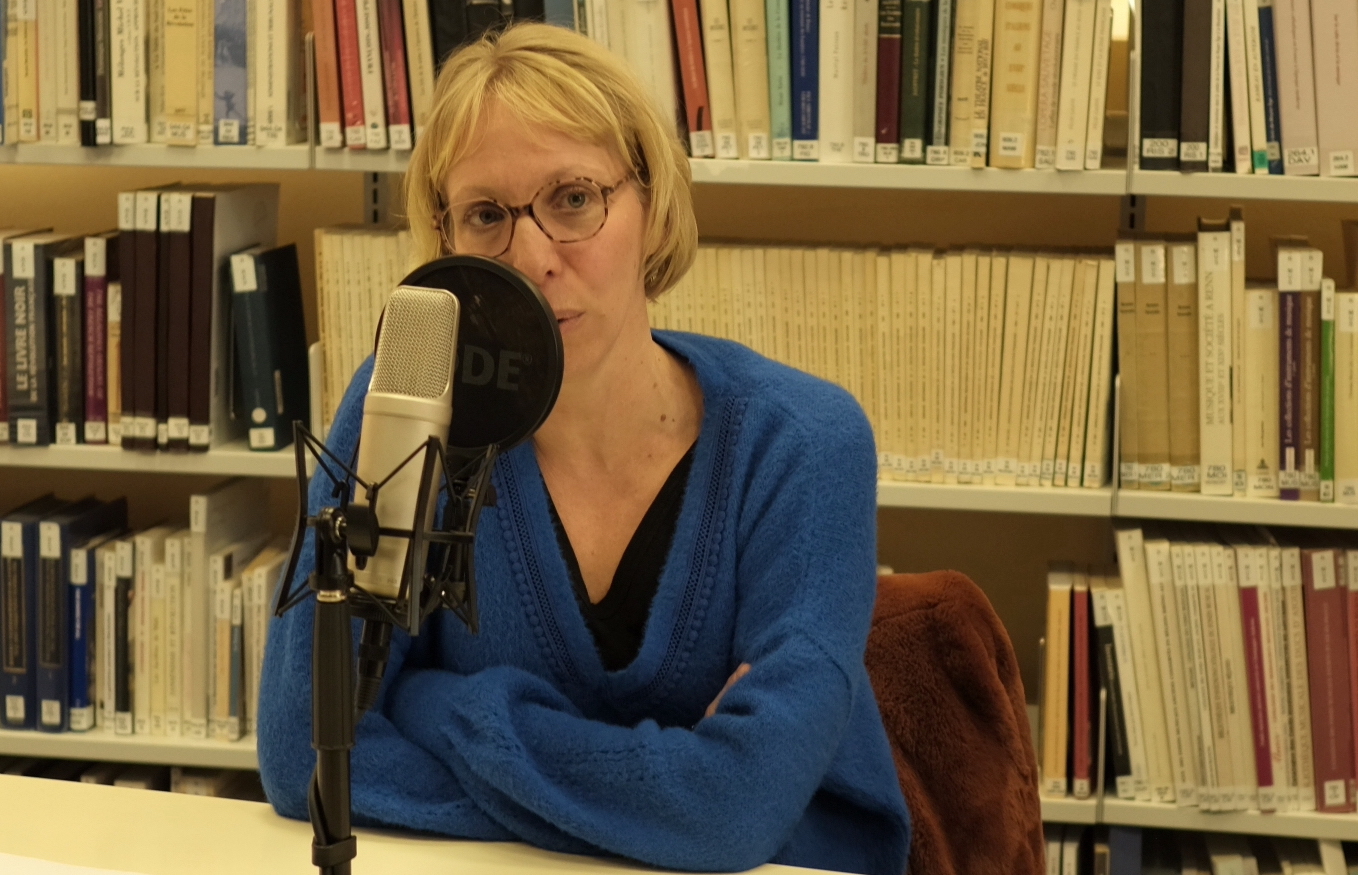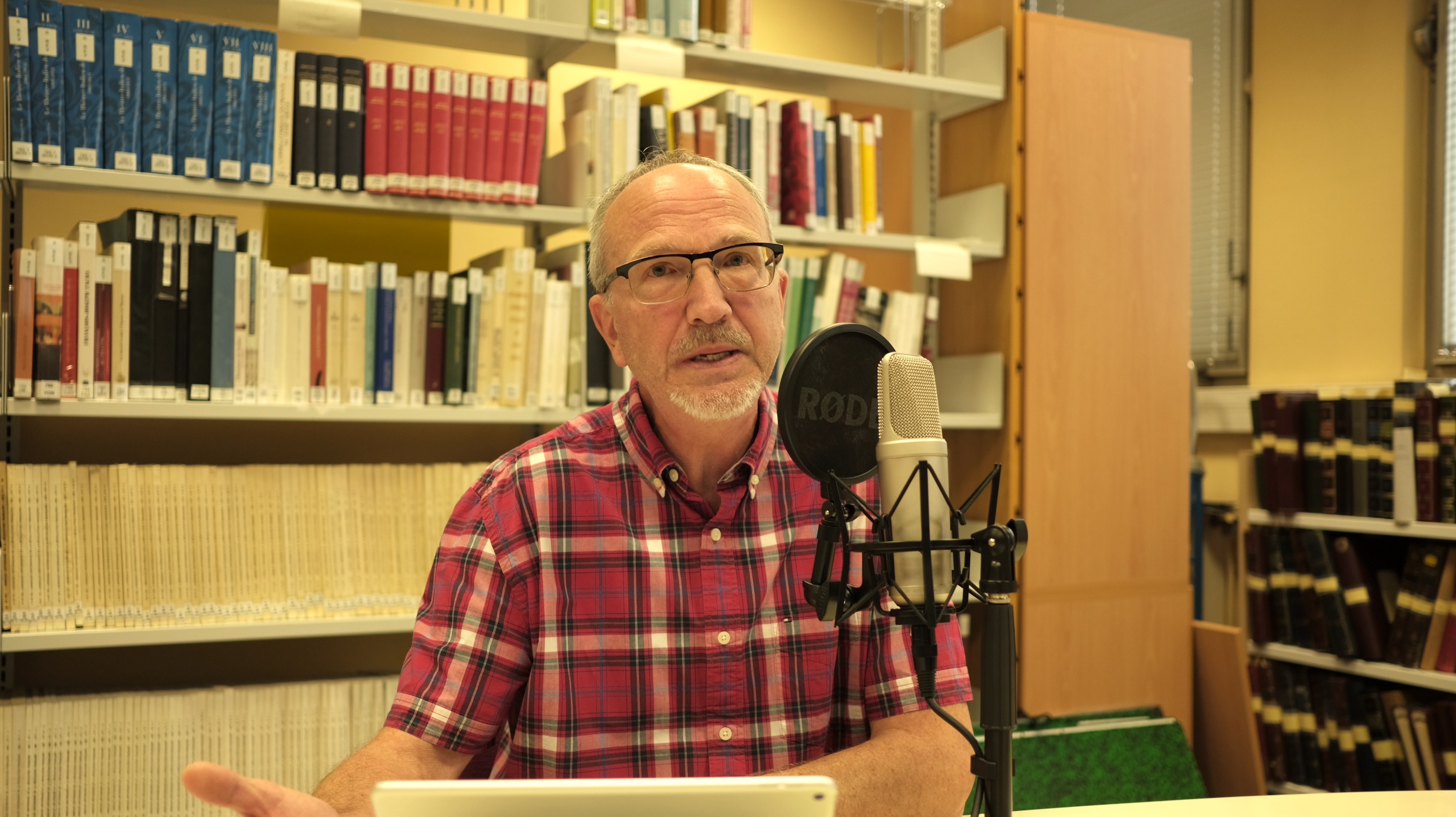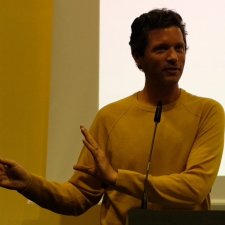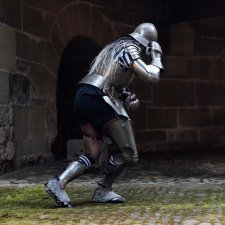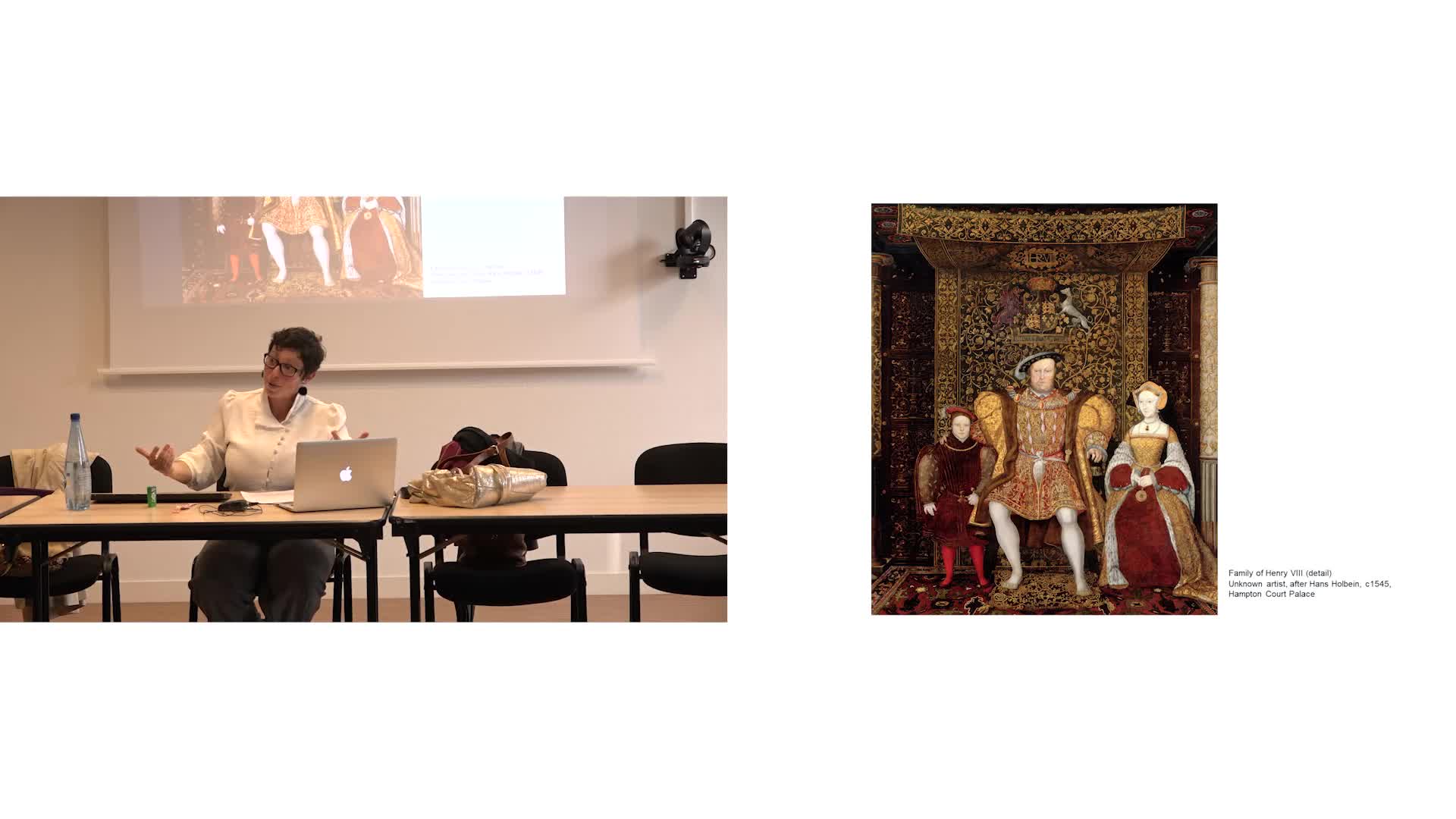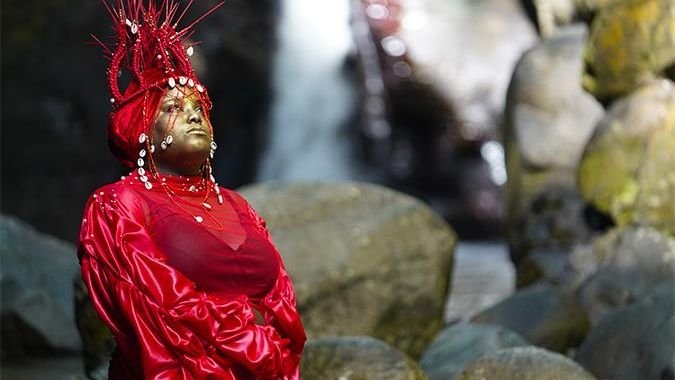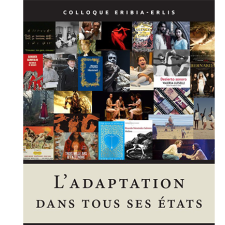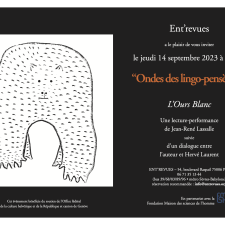Chapitres
Notice
Maison des Sciences de l'Homme de Clermont-Ferrand
Shakespearean performances. All the World's a (Wet) Stage
- document 1 document 2 document 3
- niveau 1 niveau 2 niveau 3
Descriptif
Lowell Duckert is Associate Professor of English, specialist of early modern drama and environmental criticism (University of Delaware, USA).
Actors in Pericles (1607-8) and The Tempest (1611) do not merely act drenched during their stormy scenes. Stage directions call for the players to literally “enter wet.” Why not dry? William Shakespeare’s plays ponder the turbulent relationship between oceans and humans in the early seventeenth century. In this podcast, I will discuss how water’s physical presence invited audiences to question the separation between human and nonhuman, dry subject and wet object. When watery bodies materialize on the early modern stage, they indicate fluid kinds of embodiment in which water and the human are enmeshed. To “enter wet” is to enter into slippery alliances leading to both catastrophe and joy. The plays’ overlooked stage directions prove that Shakespeare thought deeply about the ecological uncertainties of his time—and by returning to them, I suggest, we may reimagine our own interactions with the world’s unsteady waters.
Animation : Sophie Chiari (MSH)
Débat : Sophie Chiari (MSH) et Julie Van Parys-Rotondi (IHRIM)
Enregistrement et montage : Eric Fayet (Focale SHS/MSH)
Thème
Documentation
Dans la même collection
-
La « performance » dans les spectacles de l'époque moderne
SpinaOlivierOlivier Spina explore le théâtre anglais à l’époque moderne, éclairant ainsi des questionnements très contemporains autour de cet art devenu « performance dramatique ».
-
La performance des bâtiments face aux crises environnementales, économiques et sociales
RouxJean-JacquesJean-Jacques Roux (INSA Lyon) aborde la performance des bâtiments face aux crises environnementales, économiques et sociales essentiellement par le biais du DPE.
-
Compréhension et accompagnement de la quête de performance sportive de haut niveau : l'invention co…
SauryJacquesJacques Saury explore la notion de performance selon son double point de vue de chercheur et d'intervenant auprès de sportifs de haut niveau dans l’analyse et l’optimisation de leurs performances.
-
La victoire se mérite-t-elle vraiment ?
VerchèreRaphaëlA l'approche des Jeux Olympiques de 2024, Raphaël Verchère, philosophe, mène une réflexion stimulante sur la soi-disant méritocratie prônée par le sport.
-
La performance narrative. Art, littérature, scène
PireyreEmmanuelleEmmanuelle Pireyre présente la performance narrative, forme scénique où un.e artiste adresse au public un discours, dans lequel se trouvent incorporés d’autres médiums...
-
Performer en géomorphologie : du terrain à la médiation
ÉtienneSamuelSamuel Étienne présente trois types de relations performatives de la géomorphologie au monde : le rapport au terrain, le rapport à la publication et le rapport à l’art.
-
Quand la performance fait mâle : la construction de la masculinité dans la littérature à thématique…
GaucherJulieJulie Gaucher envisage les caractéristiques que la littérature attribue au personnage du sportif lorsque ce dernier par la performance sportive en vient à performer un idéal de masculinité.
-
Les performances des élèves du Manitoba en français : une langue en danger ?
RocqueJulesJules Rocque définit d’abord la notion de « performance » et précise la mission de l’école en contexte francophone minoritaire.
Avec les mêmes intervenants et intervenantes
-
Cold Doings: Early Modern Actions for Our Warmer World
DuckertLowell"Cold Doings: Early Modern Actions for Our Warmer World", a conference by Lowell Duckert, specialist of early modern drama and environmental criticism (University of Delaware).
Sur le même thème
-
"This was a place of wonders once": David Rudkin’s Magical Landscapes
ButchersScarlettAs founding narratives or idealized representations of historical figures, myths have, from time immemorial, tied humans together, creating communities that grow into organized societies. They have
-
La Cléopâtre de Shakespeare, simple « morceau refroidi / Dans l’écuelle du défunt César » ?
Boyer-LafontAgnèsUn simple survol du répertoire des personnages tirés des tragédies et des opéras baroques révèle la présence de divinités et de héros mythologiques d’une part, et de grandes figures historiques d
-
N’aie pas peur de moi, c’est moi qui ai peur de toi
SanveeDavide-Christelle« N’aie pas peur de moi, c’est moi qui ai peur de toi ! » : Conférence du 3 décembre 2024 dans le cadre du cycle les leçons du mardi « Monstrum » proposé par Emmanuelle Raoul-Duval et Jacques-Marie
-
Figures du père dans la première modernité anglaise, 1510-1620: absolutisme et fragilités. Le Père,…
La figure paternelle des XVIe et XVIIe siècles anglais est a priori envisagée comme absolument autoritaire, tant dans le cercle familial que plus largement dans l’ensemble de la structure sociale,
-
La « performance » dans les spectacles de l'époque moderne
SpinaOlivierOlivier Spina explore le théâtre anglais à l’époque moderne, éclairant ainsi des questionnements très contemporains autour de cet art devenu « performance dramatique ».
-
Shakespeare and the ‘spots of heaven’
ChiariSophie'Shakespeare and the spots of heaven' is a talk given by Sophie Chiari on the occasion of an international conference entitled 'Preserving the Cultural Skyscape'.
-
Cold Doings: Early Modern Actions for Our Warmer World
DuckertLowell"Cold Doings: Early Modern Actions for Our Warmer World", a conference by Lowell Duckert, specialist of early modern drama and environmental criticism (University of Delaware).
-
Rencontre avec l'artiste Gwladys Gambie
LefrançoisFrédéricGambieGwladysRencontre avec l'artiste-plasticienne Gwladys Gambie dans le cadre du cours "Rencontre avec des artistes" en Licence d'Art (2ème année).
-
La performance narrative. Art, littérature, scène
PireyreEmmanuelleEmmanuelle Pireyre présente la performance narrative, forme scénique où un.e artiste adresse au public un discours, dans lequel se trouvent incorporés d’autres médiums...
-
Shakespeare romancé : le succès en demi-teinte de la maison Hogarth
Ce colloque se propose d’explorer toutes formes d’adaptations sur différents supports ou dans différents genres littéraires, audiovisuels etc. pour mettre en lumière la spécificité du phénomène d
-
Ent'revues : Soirée "L'ours Blanc"
LassalleJean-RenéLaurentHervéRencontre avec Jean-René Lassalle et Hervé Laurent à l'occasion de la parution de la revue "L'ours Blanc"
-
Transamerican Art Pioneers, Part 1: Ana Mendieta
LefrançoisFrédéricCe podcast rassemble des entretiens, des conférences et des discussions sur les pionniers de l'art transaméricain qui ont émigré aux États-Unis, dans les Caraïbes ou dans d'autres parties des








